Focus
Your Present Location: HOME> Focus-

AIIB meeting to boost regional cooperation amid tension
As leaders, officials and experts meet virtually on Tuesday for a meeting of the 102-member Asian Infrastructure Investment Bank (AIIB), they will likely focus on boosting regional and global cooperation, and highlighting the urgency to stand up to a rising tide of anti-globalization amid profound challenges posed by the COVID-19 pandemic, Chinese experts said on Monday. The meeting also comes as the US increasingly seeks to stir up tension in Asia and beyond. In a speech scheduled for the annual meeting of the China-initiated multilateral investment bank, Chinese President Xi Jinping will also likely reiterate China's unwavering support for inclusive global cooperation and encapsulate China's long-standing guiding principle for foreign policy that is based on mutual respect and benefit, in stark contrast to the US' ideologically driven and inward-looking approach defined by its recent relentless attacks on China, experts noted.
2020-07-29 -
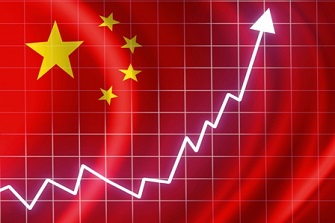
He Weiwen: China’s Rebound
China’s National Bureau of Statistics released a report on July 16 on Q2 economic performance that showed 3.2 percent GDP growth year-on-year, a dramatic rebound from the 6.8 percent decline registered in Q1, thus narrowing the H1 fall to 1.6 percent from a year ago. China’s sharp V-shaped economic upturn serves as a bright lighthouse in a world of economic darkness in which most of the leading economies continue to struggle with the worst recession since the Great Depression of the 1930s. Nicolas Lardy, senior fellow at the Peterson Institute of International Economy, regards it as an important and positive contribution to the world economy.
2020-07-29 -
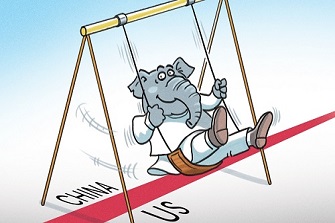
Liu Zongyi: Domestic politics, nationalism misguide India's China policy
Despite the de-escalation of border tensions between China and India, New Delhi hasn't stopped its China smear campaign, accusing Beijing of being expansionist. At an all-party meeting on June 19, Indian Prime Minister Narendra Modi said that no one entered Indian territory, nor were Indian posts taken, but he strongly criticized "expansionism" in early July, saying "era of expansionism is over" as he paid a visit to a border military base. This was widely regarded as a message sent to China, though Modi did not mention China specifically.
2020-07-29 -
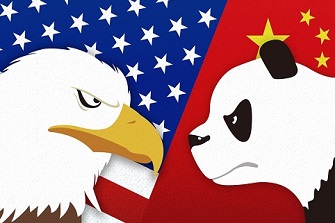
Zhao Minghao: Trump policy toward China skewed by academic fanatic
As a Chinese researcher of the US, I have been searching for the best way to understand the country. I spent some time studying at Purdue University in Indiana, which is a very "American" place. While there, I not only discussed international relations problems with US professors, but also attended local church activities where I listened to ordinary Americans praying and singing songs in praise of God. I still miss that place and those kind and friendly Americans.
2020-07-28 -
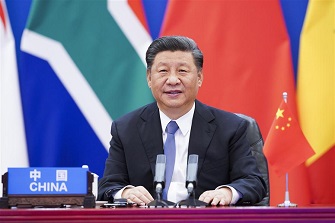
Xi expected to support AIIB in financing recovery
President Xi Jinping is set to address a key meeting of the Asian Infrastructure Investment Bank on Tuesday at which analysts said he may unveil more policies to support the bank as it helps fund regional and global economic recovery from the COVID-19 pandemic. Xi will speak in Beijing at the opening ceremony of the fifth annual meeting of the Board of Governors of the AIIB, to be held via video link.
2020-07-28 -

Pakistan’s FDI gets a major boost with $855 Million Chinese Investment in 2020.
Foreign Direct Investment in Pakistan is seeing an uphill trend this year and recorded a 91 percent increase. This was made possible with $855 Million Chinese Investment in various sectors primarily in the energy sector, said Professor Zhou Rong, Senior Fellow of Chongyang Institute for Financial Study of Renmin University. Professor lauded the government’s commitment to facilitate investment under Pakistan Single Window (PSW) to streamline cross-border movement of goods and regulatory bottlenecks by 2022. Moreover, he added that in order to ensure smooth business cooperation, a streamlining regulatory environment is a must.
2020-07-28 -
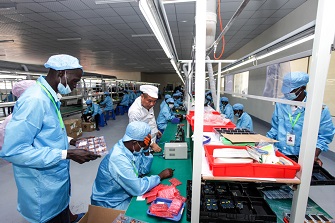
Small firms seek big global roles
China's small and medium-sized enterprises (SMEs) hoping to succeed overseas need to improve safety and risk control capabilities by cooperating with local governments and service providers in the COVID-19 era, experts said. This is essential as international trade has been affected in many ways due to the pandemic's impact on supply chains, industrial chains, finance and human capital flow, they said.
2020-07-28 -
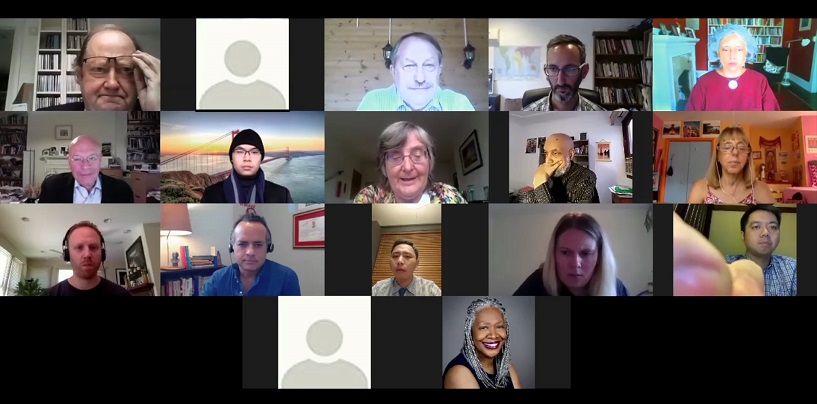
【No to the New Cold War】Academics and activists join forces to prevent 'new Cold War'
A new international body of academics and political activists has warned the world against sliding into a new Cold War, as the hostile rhetoric between the U.S. and China continues to ramp up.The abrupt closure of China's consulate in Houston, followed by the U.S. consulate being shut in Chengdu are the latest incidents in a rapidly escalating conflict between the two superpowers.
2020-07-28 -
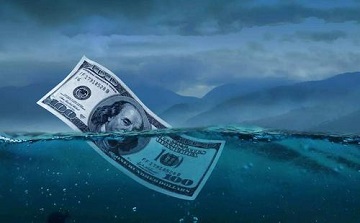
【Forbes】The Dollar Is A ‘Sword Of Damocles’ Over China
The dollar is the weapon. China can’t survive as it does without it. And even if it convinces Iran to sell oil to them in renminbi...do the Iranians even want renminbi? Maybe they can pay in gold bars? On July 20, The Global Times, one of the bigger, English-language voices of the Chinese establishment, wrote what may appear more like a message to its trading partners: the global trend toward "de-dollarization" has already begun, wrote Wang Wen, professor and executive dean of the Chongyang Institute for Financial Studies at Renmin University of China. The last piece of the "load-bearing wall" of the "U.S. Empire State Building" has cracked
2020-07-28 -
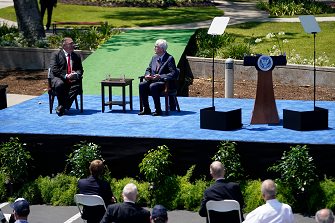
William Jones: Can the U.S. learn to live with a rising China?
This was the "fundamental choice" for America as posed by China's Ambassador to the U.S., Cui Tiankai, in a recent interview with CNN's Fareed Zakaria. Now Chinese diplomats are being closely monitored in their contacts with U.S. officials at all levels of government. Chinese scholars working and studying in the United States are being hounded and in some cases thrown out of the country on alleged suspicions of "spying" for China. U.S. firms are being encouraged to shun China and a Chinese consulate in the U.S. has been abruptly ordered to shut down.
2020-07-25 -

Mixed signals from France on Huawei spark concern
France's reported "hidden" ban on Huawei will not only delay 5G commercialization in the country that could have taken the lead in utilizing next-generation technology, but will increase uncertainties for local telecom operators, which are now struggling amid a severe economic downturn, analysts said. French authorities have told telecom operators planning to buy Huawei 5G equipment that they won't be able to renew licenses for the gear once they expire in 2028, effectively phasing the Chinese firm out of mobile networks, Reuters said.
2020-07-24 -
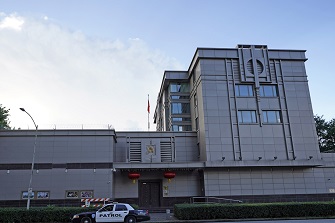
Consulate closure to hurt business ties
The abrupt move by the US to order the closure of the Chinese consulate in Houston, Texas could hamper $60 billion worth of trade between the eight US states the consulate covers and China, as well as hundreds of Chinese businesses operating in southern US states, former Chinese diplomats, business leaders and experts said Thursday.
2020-07-24 -

Closing Chinese consulate in Houston jeopardizes trade worth billions
Washington’s order forcing the Chinese Consulate General in Houston to close will likely hamper business ties worth billions of dollars between the eight US states that the consulate serves and China, a former Chinese diplomat in the US said. In what Chinese officials call an “unprecedented” escalation of tensions, the US government has ordered the consulate closed, the Chinese Foreign Ministry confirmed on Wednesday. The consulate, which opened in 1979, serves eight southern US states – Texas, Oklahoma, Louisiana, Arkansas, Alabama, Georgia, Florida and Puerto Rico.
2020-07-24 -
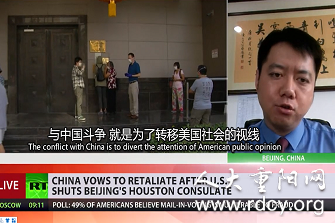
【RT Interview】Wang Wen: In the next three months, China-US relations will be in high-risk. Trump can do anything.
On July 21, the US suddenly requested China to close the Consulate General in Houston within 3 days, which aroused strong public concern. In response to this, Wang Wen, executive dean of the Chongyang Institute of Finance at Renmin University of China (RDCY), said in a live interview on Russian TV Today (RT) that the United States is already very crazy with China and has no bottom line.
2020-07-23 -

With COVID-19 deal reached, EU comes out stronger but problems remain
As the EU summit wraps up its marathon sessions in Brussels, leaders of the 27 member states have walked out of the conference with a deal that EU officials call a historical step towards greater integration. While this apparent victory indeed calls for celebration, experts say it should not overshadow the underlying problems that were brought to light during the fractious summit.
2020-07-23 -

【People's Daily】A systematic summary of the results of the "Belt and Road Initiative"
The book "Belt and Road Encyclopedia", edited by Liu Wei and executive editor Wang Wen, has been published by Chongwen Publishing House. In the form of an encyclopedia, this book systematically summarized and provided the theoretical and practical achievements of the "Belt and Road Initiative"(BRI).
2020-07-21 -
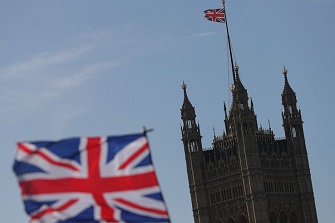
Beijing may target British companies if 10 Downing Street sanctions China
The British government has been urged to make a "smart choice" and not to burn bridges by continuing to provoke China on matters such as Hong Kong, Xinjiang, Huawei and the South China Sea, and dance to the tune of Americans. Otherwise, it will face severe consequences of souring UK-China ties, officials and observers warned.
2020-07-21 -
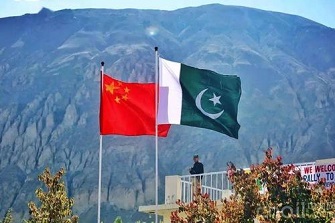
CPEC construction will not be hindered by COVID-19 pandemic: expert
The construction of the China-Pakistan Economic Corridor (CPEC) will not be decelerated but is instead progressing, a leading Chinese academic on the CPEC told the Global Times after Indian media reported that Chinese personnel working at CPEC projects lodged concerns over virus prevention and control efforts by the Pakistani government.
2020-07-21 -

Zhou Rong: What do 3G, 4G services mean to far-flung areas of Pakistan?
BEIJING, July 20 (China Economic Net) - Pakistani Federal Minister for Information Technology and Telecommunication Syed Aminul Haque has announced that 3G and 4G services will be provided soon to far-flung areas of Balochistan, Khyber-Pakhtunkhwa and Gilgit-Baltistan.Right now the government of Pakistan was committed to promoting the country’s technological capacity to develop a globally competitive IT sector and industry. As the minister put it, the project would meet the objective of providing infrastructure in order to ensure access and connectivity for people, provide broadband services to the locals, improve their life standard, create job opportunities, empower women and so on.
2020-07-21 -
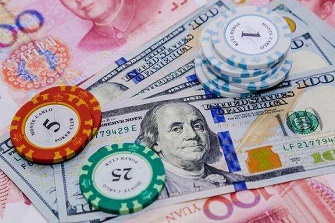
Wang Wen: China confident ‘de-dollarization’ is fast underway amid tense times
A global trend toward "de-dollarization" has already begun. The last piece of "load-bearing wall" of the "US Empire State Building" has cracked, in other words. Global policies for "de-dollarization" include sharply reducing US debt holdings, dropping US dollar's status as an anchor currency, increasing non-dollar bulk commodity trade, growing the reserve of non-dollar currencies, and ramping up gold's hedge against the dollar.
2020-07-21
























































































 京公网安备 11010802037854号
京公网安备 11010802037854号





